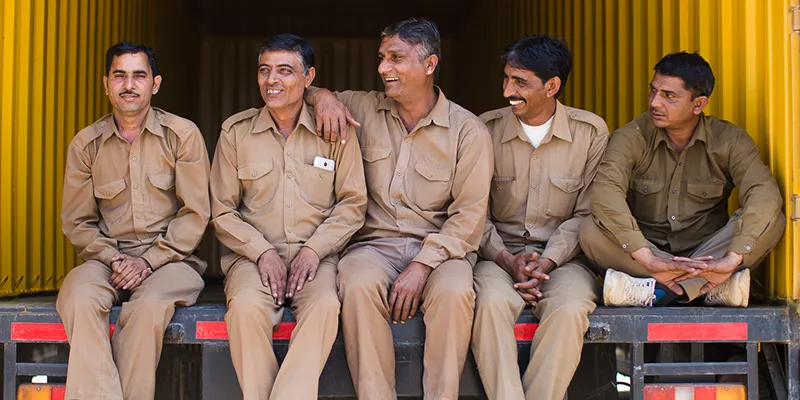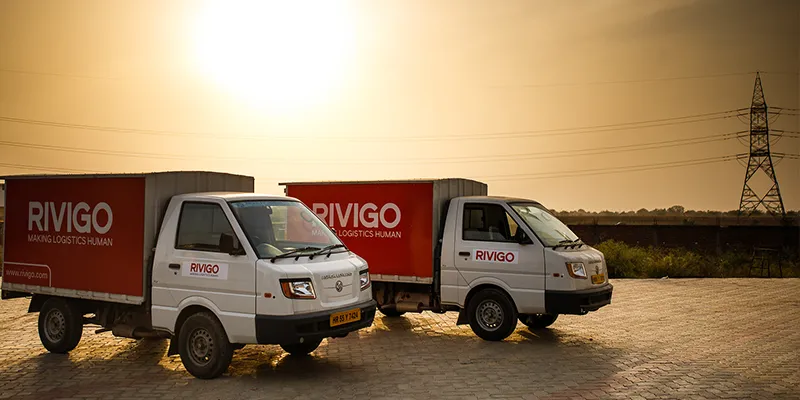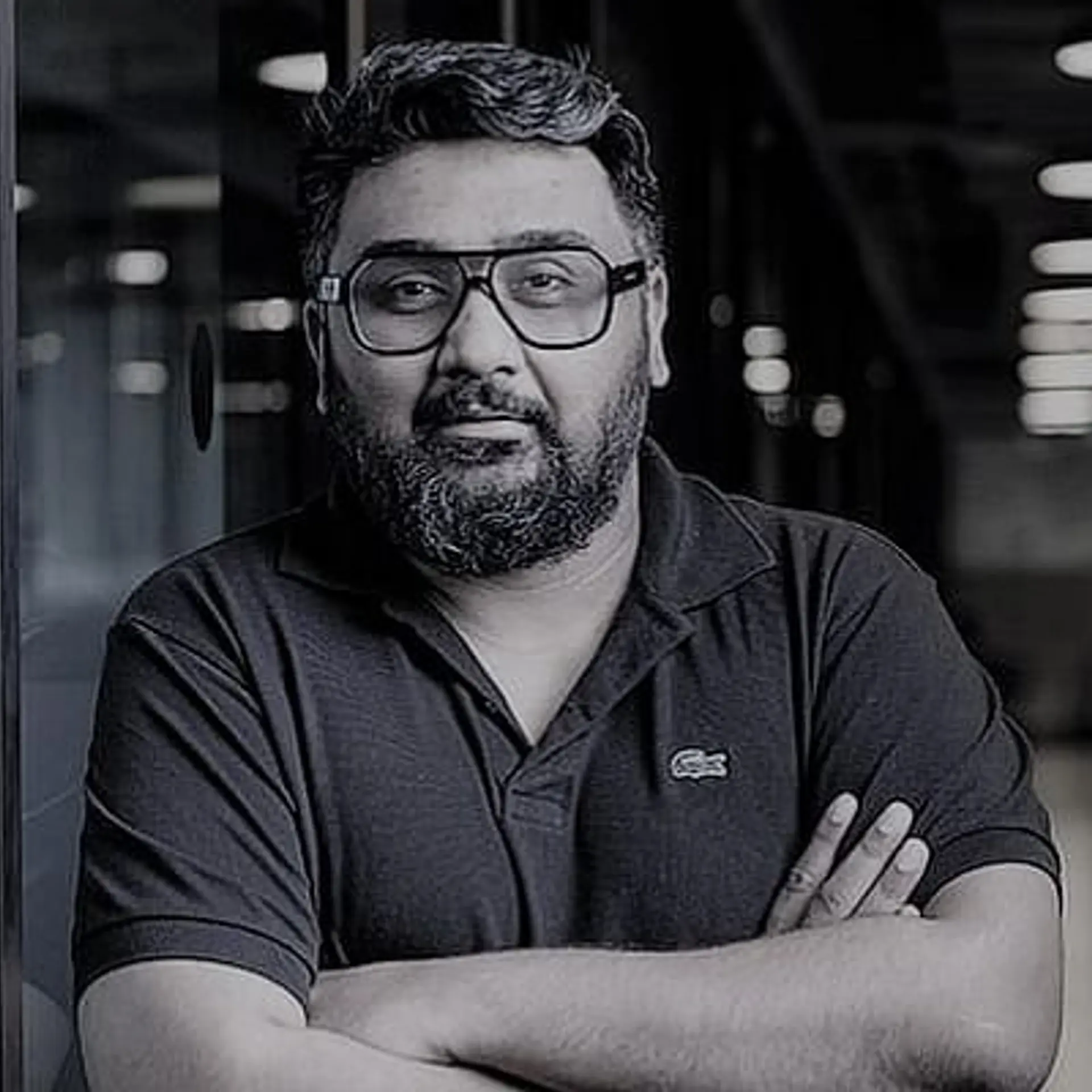Rivigo shows how a humane but tech-enabled logistics company can command a billion-dollar valuation
By launching the relay model of trucking and heavily deploying technology, Rivigo is changing the way logistics is done in India. In the process it is ensuring truck drivers, who were earlier on the road for 20 days a month, now sleep at home every night.
All Gazal Kalra and Deepak Garg had was faith and hope when they founded transportation company Rivigo. Faith in their revolutionary idea and hope that the industry would accept it.
The idea was simple enough. Transportation in India is among the most part of operations for companies in sectors as diverse as manufacturing, FMCG, and ecommerce. Trucks are typically old, open to the elements (tarpaulin is used as an inadequate cover) and badly maintained, and there is very little visibility on when a truck will reach the destination after it has started from the source location. In Indian logistics, traditionally, a single driver travels with the truck for the entire distance that a particular delivery requires, making halts on the way for rest. This causes deliveries to take over a week when doing runs between cities like Delhi and Chennai or Bengaluru and Guwahati. This also makes drivers stay away from home and family for over 20 days a month.
Gazal and Deepak’s idea was why not change the model. Ensure they use only new covered trucks, give complete visibility to the client on a truck’s journey, and ensure that a truck can cover the distance between any two parts of India in less than three days.

Walking the talk
This is exactly what the Rivigo team has done in under four years. They have created a fleet of around 3,000 containerised trucks, all sourced directly from the manufacturers. These trucks are also heavily tech-enabled. But we will come to the tech side later.
For the most revolutionary step they have taken is to introduce the relay trucking model in India. Their fleet of 3,000 trucks runs almost non-stop with drivers working in shifts, handing over the truck to the next driver at pit stops along the route. The driver who has handed over the truck then takes the wheel of another truck making the return journey and so is back at his home stop by end of the day.
The fact that drivers stay on the road for days on end makes this a profession that is looked down upon. Many truck drivers take to alcohol and drugs to cope with the stresses of the job, which include harassment from the police and dacoits. Studies have shown that long distance truck drivers are highly vulnerable to HIV transmission due to risky sexual behaviour, like sex with prostitutes. The National AIDS Control Organisation (NACO) estimates that around three percent of India’s two million truckers are living with HIV. The prevalence rate among truckers is much higher than that for the country as a whole, which is at 0.3 percent.
Gazal and Deepak knew that getting the truckers home at the end of the day would solve many of these issues. It would solve a business challenge too. It is difficult to find capable truck drivers due to the issues listed earlier. Making the profession respectable would ensure a steady supply of good drivers. Also, the pit stops are located in semi-urban and rural areas such as Pataudi. Since drivers come from rural and semi-urban areas and not main cities, salaries are at around Rs 25,000 per driver a month. Long distance driver salaries have gone up to over Rs 40,000 in many parts of the country.
There is a precedent to this relay system. That’s exactly what the airlines industry does. The planes keep flying through the day, the pilots and crew change each sector. No wonder then that Rivigo calls its drivers pilots.
A truck with tech

On paper, this system sounds simple enough. But in practice, it is anything but easy. The company has created a network of over 70 pit stops across the country. This translates to a driving distance of around 250 km or around five hours for a driver between pit stops.
But to ensure that a trip happens without any hiccups, the team needs to ensure complete control over many moving parts.
Gazal explains:
When I accept a booking from Delhi to Bengaluru, I need to allocate eight drivers for the 48-hour journey (which others typically cover in five days) as there are eight pit stops. But I need to confirm the eight drivers today for tomorrow’s journey as the truck cannot stop.”
There is further complication. The pilot after handing over one truck needs to take the wheel of another truck that is coming in the opposite direction. So, the trip planning and routing needs to be done in such a way that there are trucks travelling in both the directions at about a similar time.
The first Rivigo truck reached Mumbai from Delhi in 24 hours. The client’s entire warehouse team was present to receive the truck because they had never known the distance to be travelled in a day. The second truck also reached in 24 hours, but the third truck took 36 hours as it experienced a breakdown.
This and the need to have complete control and visibility over routing and each part of a truck’s journey made the company invest heavily in technology.
The mobile app for a pilot, which is more image-based than text and is available in 11 languages, tracks everything a driver needs to do, from notification of duties to surveys.
The pilot gets the duty alert on his phone, reaches the pit stop and scans his unique QR code to show he has reached. The incoming pilot has already got the alert on his app on the pilot he needs to hand over to. There is a tech handshake through QR codes on the two pilots’ app. The pilot taking over has a checklist regarding the truck’s and shipment’s condition that he needs to verify through the app. All this takes less than five minutes and the pilot can drive off to his next pit stop.

Clients too get completely visibility from booking to delivery.
The routing and assigning of pilots is taken care of by algorithms. Rivigo’s trucks are IoT-enabled with the condition of the vehicle being monitored in real time. This helps reduce breakdowns, ensuring reliability. This smart monitoring became even more critical when they launched refrigerated trucks for the fresh produce industry. Rivigo’s clients can check the temperature in real time and even change the temperature remotely through an app.
Driving in change
It is this use of tech to solve the problems that have dogged this industry for years that has impressed clients, analysts, and others.
Rivigo is giving a product offering which is pathbreaking. Benefiting the customers and the most unprivileged stakeholder, the driver. They are doing this at a cost that is competitive. In transport, fixed cost is around 45 percent to 50 percent, whether a truck runs for 10 km or 100. While trucks in the traditional model do about three trips a month, Rivigo’s trucks do about seven return trips,” says Manish Saigal, Managing Director at advisory firm Alvarez & Marsal and a leading expert on the logistics industry.
Manish says road transportation is a $80-billion opportunity in India, making it the single largest opportunity in logistics. It is still a highly unorganised industry with only about three to four percent of players owning over 30 trucks.
Rivigo has a client base of around 3,000 enterprises and corporates and many more SMEs across over 16 sectors, including automative, pharma, lifestyle, white goods, ecommerce, apparel, and publications.
Rivigo’s clients too are impressed with the company not just for the improved turnaround but also for bringing in a better model for drivers. “The model is very intelligent. They sweat the assets. The way they treat the drivers is very unique; they are adding a lot of value to the drivers,” says Hari Menon, Co-founder of e-grocer BigBasket. The company uses Rivigo’s refrigerated trucks.
We are building a national grid for sourcing our fruits and vegetables and we transport this produce over long distances. So, temperature control is important. With Rivigo I can track the temperature in the truck in real time. Otherwise too, if we need to make sure stuff needs to reach fast, we use them,” says Hari.
BigBasket’s Head for fruits and vegetables, Vipul Mittal, says: “Rivigo has disrupted the industry. They have helped us compress the time taken to transport produce between Delhi-Bengaluru, Guwahati-Bengaluru to half the time typically taken. That’s a big value-add for perishable products. I have been in supply chain for decades and I know the driver is the most important part but is also the most badly treated traditionally. Rivigo’s model changes that and that fascinated me.”
He, however, adds that Rivigo has not been able to pass on the entire cost benefit to clients.
If I pay Rs 1 lakh for a trip to a traditional player for a return trip, Rivigo will be about Rs 10,000 cheaper. This, despite me paying extra to the traditional player because he needs to return with an empty truck. Rivigo does not have empty trips,” says Vipul.
Rivigo declined to reveal the price it charges customers, nor the current revenue figures. The company only said that clients see a saving of 12 percent to 20 percent in overall logistics cost when they shift to Rivigo. In FY2017, the company’s revenue stood at Rs 402 crore up from Rs 149 crore the previous fiscal. Losses also galloped to Rs 137 crore last fiscal from Rs 5.5 crore in FY2016.
The company raised $50 million last year from existing investors Warburg Pincus and SAIF Partners. Gazal confirmed the company has reached post-money valuation of $1 billion.
In recent years, truck marketplaces like Blackbuck, Lobb and Trukky have come up, as have last-mile and hyperlocal transporters like Shadowfax. Then there are players like Delhivery and Ecom Express that offer a combination of warehousing, line haul and last mile delivery services. Rivigo is the only company in India that uses the relay trucking model. In fact, globally, this is a new model in logistics.
Much of the startup activity in logistics has taken place post 2013, especially after the advent of the ecommerce industry. This is already having an impact on the country’s ranking on the Logistics Performance Index, the World Bank’s measure of international supply chain efficiency. India’s ranking rose from 54 in 2014 to 35 in 2016 on the Index that comes out every two years. With the rollout of GST last year and introduction of e-way bill and the scaling up of the tech-enabled logistics segment, this ranking is expected to improve this year.
Rivigo has now expanded to offering part truck loads to clients from just full truck loads. For this, it has set up a feeder network of smaller trucks and around 200 processing centres around the country where loads get combined. While this would definitely increase its business, experts suggest there is a danger too.
This is a completely different business than the core full truck load model. They are adding one more variable. They will need to decide how many battles they want to fight,” says a consultant, who spoke on condition of anonymity as he has consulted for Rivigo in the past.

He adds scalability is a challenge, as for each truck they add to the fleet, they will need at least double the number of drivers. Getting such a large, trained driver base will not be easy.
The company recognises these challenges, especially that of finding the right set of drivers and has therefore invested in an effective HR process. Gazal and Deepak, both former executives at McKinsey & Company, have created a hiring process for drivers that is almost as stringent as the one they have created for their management with checks for behaviour, attitude, and technical skills. All drivers go through training programmes. Gazal believes the driver or rather pilot-first model will be a magnet for drivers.
Another area of focus for the company, which has an employee base of around 2,000 not including the pilots, is technology, especially in Artificial Intelligence (AI). The company has got on board Vibhanshu Abhishek, an Assistant Professor of Information Systems and Economics at the Heinz College of Carnegie Mellon University, as the company's AI advisor. It is also planning to create an AI and machine learning team of about 40 to focus specially on network design and routing.
“The amount of AI and blockchain you can use in logistics is unparalleled. We generate so much data. Something as simple as driver routing can be made much more efficient with machine learning and AI,” says Gazal.
She says Rivigo is only getting started:
Our philosophy from day one has been that this is a large sector to solve for. We want to build Rivigo into an institution that will last beyond our lifetime. Our aspiration keeps growing every year. But the main aspiration is quite simple – make India number one in logistics in the world.”







